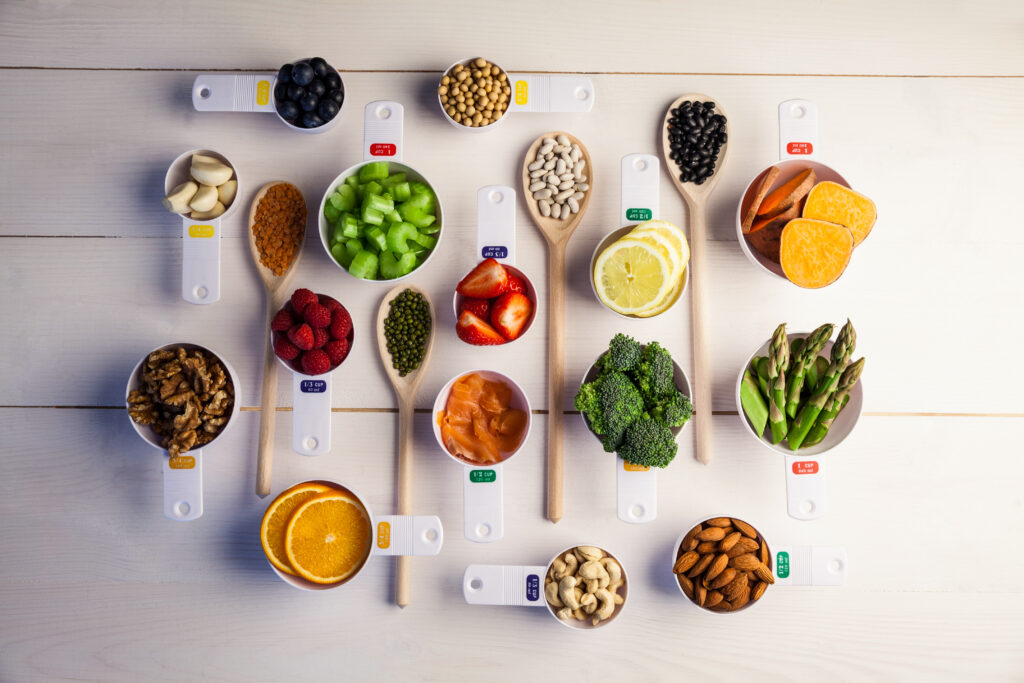Nutrition is a cornerstone of overall health, influencing both physical performance and mental wellbeing. A balanced diet provides the body with the essential nutrients required for energy production, cellular repair, immune function, and cognitive health. In the UK, dietary guidelines emphasise a varied intake of fruits, vegetables, whole grains, lean proteins, and healthy fats to maintain optimal health. Beyond weight management, good nutrition supports long-term disease prevention, reduces the risk of chronic conditions, and enhances quality of life.
With growing awareness of plant-based eating, functional foods, and the importance of hydration, people are seeking practical advice to improve their eating habits. Meal planning, understanding nutrient sources, and integrating foods that promote both physical and mental resilience are increasingly popular topics. This section addresses common nutrition and diet questions, offering evidence-based guidance for maintaining a healthy lifestyle in the UK.

What Are The Key Nutrients For A Healthy Balanced Diet
A healthy balanced diet includes macronutrients—carbohydrates, proteins, and fats—and micronutrients, including vitamins and minerals. Carbohydrates provide energy and are abundant in whole grains, fruits, and vegetables. Proteins are essential for muscle repair, enzyme production, and hormone regulation, and can be obtained from lean meats, fish, eggs, dairy, legumes, and plant-based sources. Healthy fats, including omega-3 and omega-6 fatty acids, support heart and brain health and are found in nuts, seeds, oily fish, and vegetable oils. Vitamins such as A, C, D, E, and B-complex, along with minerals like calcium, iron, magnesium, and zinc, play key roles in immune function, bone health, and energy metabolism.

What Are The Best Sources Of Plant-Based Protein In The UK
Plant-based proteins are increasingly popular in the UK for health and sustainability reasons. Excellent sources include lentils, chickpeas, black beans, kidney beans, tofu, tempeh, edamame, seitan, and quinoa. Nuts and seeds, such as almonds, pumpkin seeds, and chia seeds, also contribute protein while providing healthy fats. Incorporating a variety of plant proteins ensures a complete amino acid profile, supporting muscle maintenance, repair, and overall health. Combining different plant proteins throughout the day can further enhance nutritional quality.
How Can I Plan Healthy Meals On A Budget
Budget-friendly meal planning is achievable with strategic preparation and simple ingredients. Planning weekly menus, buying seasonal produce, and choosing store-brand or frozen fruits and vegetables can reduce costs. Legumes, eggs, oats, rice, and pasta are affordable staples that provide essential nutrients. Preparing meals in bulk, using leftovers creatively, and limiting processed foods helps maintain a nutritious diet while avoiding unnecessary expenditure. Meal prep apps and guides can assist with portioning, shopping lists, and balanced meal ideas for the week.

What Are The Benefits Of The Mediterranean Diet
The Mediterranean diet is consistently linked with reduced risk of heart disease, improved cognitive function, and better overall health. This diet emphasises fruits, vegetables, whole grains, legumes, nuts, seeds, olive oil, and moderate consumption of fish and poultry. Red meat and processed foods are limited, and meals often include herbs and spices instead of excessive salt. Studies show that this diet supports healthy weight management, lowers cholesterol, enhances metabolic health, and contributes to longevity. It is also associated with improved mood and mental wellbeing, complementing other wellness practices such as fitness and mindfulness.

How Much Water Should I Drink Each Day For Optimal Health
Hydration is essential for cellular function, digestion, circulation, and temperature regulation. In the UK, the general recommendation is approximately 1.6 to 2 litres of water per day for women and 2 to 2.5 litres for men, though individual needs vary based on activity level, climate, and health status. Water-rich foods such as fruits and vegetables also contribute to hydration. Drinking water consistently throughout the day, rather than in large amounts at once, supports digestion, energy levels, and cognitive function. Avoiding excessive sugary drinks and monitoring signs of dehydration are important for maintaining overall health.
What Are Common Nutrient Deficiencies In The UK And How Can I Avoid Them
Certain nutrient deficiencies are relatively common in the UK due to dietary patterns and lifestyle factors. Iron deficiency can affect energy levels and is found in lean meats, legumes, and leafy greens. Vitamin D deficiency is prevalent due to limited sunlight exposure and can be supplemented or obtained from fortified foods and oily fish. Calcium supports bone health and is found in dairy products, fortified plant milks, and leafy greens. Iodine, zinc, and vitamin B12 may also require attention, particularly for individuals following vegan or vegetarian diets. Regularly consuming a varied diet and considering supplementation when necessary helps prevent deficiencies.

Are Supplements Necessary If I Eat A Balanced Diet
For most individuals with a varied and balanced diet, supplements are not essential. However, certain groups may benefit from supplementation, including pregnant women, older adults, individuals with dietary restrictions, and those with limited sun exposure. Common supplements in the UK include vitamin D, omega-3 fatty acids, and multivitamins. It is advisable to consult a healthcare professional before starting supplements to ensure appropriate dosage and avoid potential interactions. Whole foods remain the preferred source of nutrients whenever possible.

What Are Healthy Snack Ideas For Busy Days
Healthy snacks can support energy levels, prevent overeating, and provide essential nutrients. Options include fresh fruits, vegetables with hummus or yoghurt dip, nuts and seeds, wholegrain crackers with cheese or nut butter, boiled eggs, and homemade smoothies. Pre-portioning snacks into containers or bags makes them convenient for work, study, or travel. Choosing minimally processed foods with high nutrient density helps maintain satiety and supports overall health. Including protein, fibre, and healthy fats in snacks can stabilise blood sugar and reduce cravings.
How Can I Manage Sugar Cravings Effectively
Sugar cravings are common and can be managed with several practical strategies. Eating regular meals with balanced macronutrients helps prevent dips in blood sugar that trigger cravings. Choosing naturally sweet foods, such as fruit, and avoiding excessive processed snacks reduces reliance on refined sugar. Staying hydrated, incorporating high-fibre foods, and ensuring adequate protein intake support appetite regulation. Mindful eating practices, such as paying attention to hunger cues and enjoying treats in moderation, also help manage cravings without compromising long-term health goals.

What Are The Best Vitamins And Minerals For Energy And Immunity
Certain vitamins and minerals play a key role in energy production and immune function. B vitamins, particularly B12 and B6, support energy metabolism. Iron and magnesium are essential for oxygen transport and muscle function. Vitamin C and zinc strengthen immune defences and help the body respond to infections. Vitamin D contributes to immune regulation and bone health. A diet rich in a variety of colourful fruits, vegetables, whole grains, lean proteins, nuts, and seeds provides a comprehensive nutrient profile to support both energy levels and immune resilience.